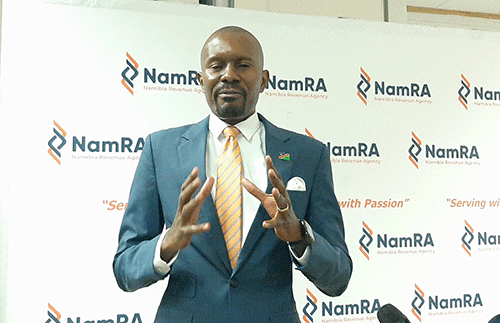WALVIS BAY – The Namibia Revenue Agency has launched the Time Release Study to measure how long it takes to release imported or exported goods at the
borders.
A national technical working group was already established, and is currently undergoing training at Walvis Bay.
The data-collection phase is expected to commence next week.
The Time Release Study (TRS) will be conducted at the port of Walvis Bay, and at all entry and exit points across the country.
The study is expected to measure the exact time of clearance and release of goods from the time of arrival until the physical release of cargo to identify bottlenecks with the process, and to improve the effectiveness and efficiency of border procedures.
Speaking during the official launch of the TRS, Namibia Revenue Agency (NamRa) commissioner Sam Shivute said the objective of the study is to enable customs authorities to establish a baseline of the current performance of border clearance procedures.
“NamRa is committed to becoming a world-class agency, serving with a passion to impact the livelihood of every Namibian.
“One of our strategic objectives at Namra is to provide customs and excise services that facilitate legitimate trade in Namibia. This study will, therefore, enhance trade and create more trade opportunities for Namibia,” he noted.
He said Namibia, as a member of the World Customs Organisation (WCO) and the World Trade Organisation (WTO), ratified the Trade Facilitation Agreement in 2018 that encourages member states to measure and publish their average release time of goods, using tools such as the TRS.
“Traders around the world want predictability, and investors would want to know if they import goods into Namibia how long the clearing of the consignment will take.
“In many instances, people blame NamRa if their goods are delayed, not knowing that some ministries and agencies also play a role in clearing goods. Hence, the report will be done in collaboration with other border agencies and government agencies, who share the responsibility of regulating and controlling imports and exports as well as clearance processes at regional and international borders,” Shivute continued.
According to him, NamRa is committed to implementing best-practice programmes in the country that would enhance trade.
Also speaking during the launch, Donia Hammami, head of the Accelerate Trade Facilitation Programme at the World Customs Organisation, said TRS will benefit the business communities and consumers once completed as it will provide a better trading environment, especially with the flow of cargo.
She added that TRS also aims to reduce inefficiencies at the agencies by reducing the potential avoidable costs businesses may incur.
“Overall, TRS will improve transparency, trade facilitation measures, promote efficiency and give consumers choices and fair pricing,” she stated.
Technical assistance and capacity-building are facilitated by the WCO, while the initiative is supported by the United Nations Conference on Trade and Development and the Majesty’s revenue and customs accelerate trade facilitation programme.
– edeklerk@nepc.com.na


